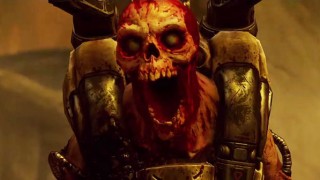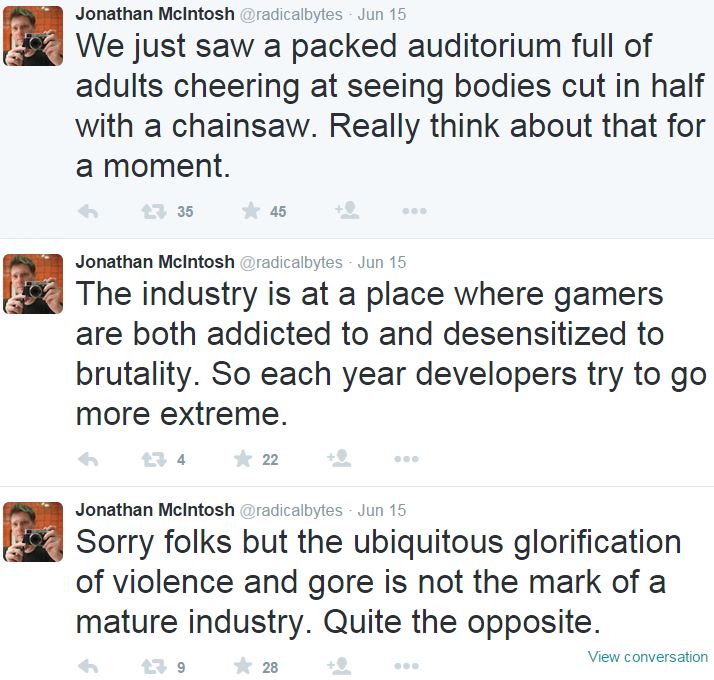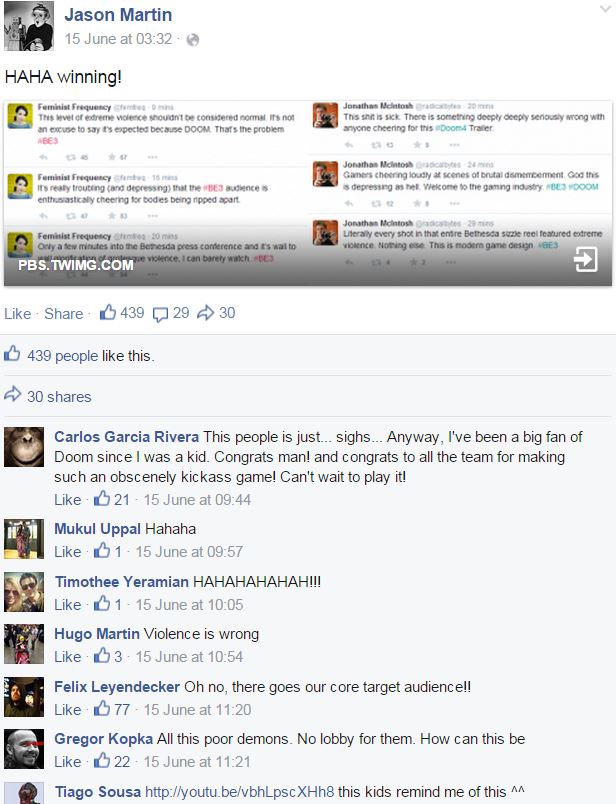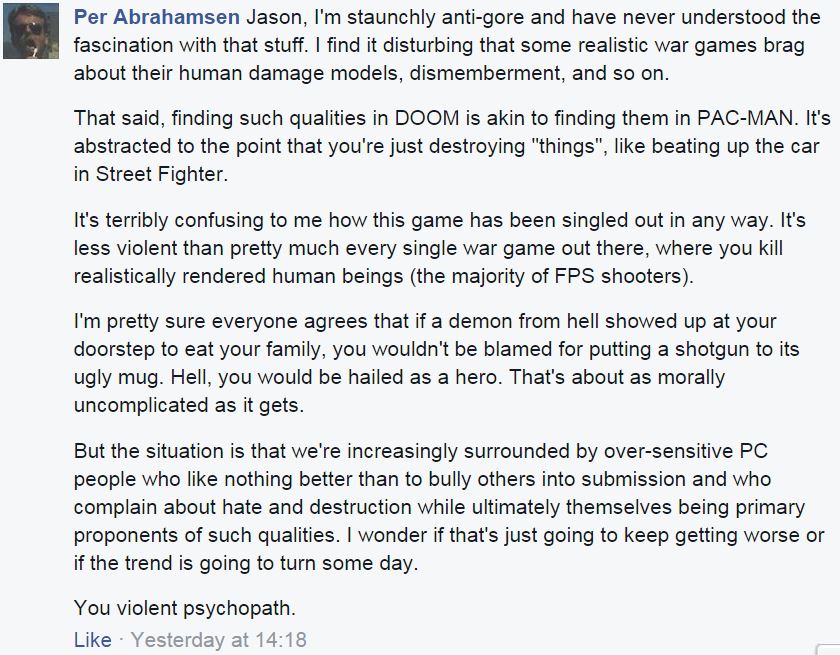
You’re making video games that a significant proportion of the gaming community enjoys and looks forward to. You work tirelessly to deliver the best possible product - working long hours, performing overtime, working through the dreaded “Crunch” - only to be greeted with Anita Sarkeesian’s angry expression. “What, now?” the exasperated, downtrodden devs must ask themselves. This time, it’s not an issue of feminism in video games, it’s an issue of violence.
The Issue of Violence in Video Games Rears Its Ugly Head, Again
Stepping outside of her own jurisdiction as feminist guru, Sarkeesian recently decided to attack Bethesda, during the Maryland-based publisher’s E3 conference. Joined by her Feminist Frequency crony, Jonathan McIntosh, a mortified Sarkeesian expressed her disdain for Bethesda’s upcoming video game titles.
Sarkeesian messaged the following to her, now 294K-strong, legion of Twitter followers:
“Only a few minutes into the Bethesda press conference and it’s wall to wall glorification of grotesque violence, I can barely watch. #BE3”
One tweet wasn’t enough to hammer home the message, as Sarkeesian tore into id Software’s Doom:
“This level of extreme violence shouldn’t be considered normal. It’s not an excuse to say it’s expected because DOOM. That’s the problem.”
Now, barely able to contain herself - no doubt, experiencing apoplectic fits and foaming at the mouth - she dropped a third Twitter post:
“It’s really troubling (and depressing) that the #BE3 audience is enthusiastically cheering for bodies being ripped apart.”
Jonathan McIntosh, producer and co-writer on Tropes vs Women in Video Games, echoed the sentiments of his ally, proclaiming E3 2015 to be the “year of dismemberment.”

Video Game Devs Respond
On balance, Sarkeesian and McIntosh’s condescending opinions and finger wagging were badly received by the gaming community. While some of her own supporters seemed to question the validity of her statements, a group of well-respected developers (gently) teased the pair. The lead artist designer at id Software, Jason Martin, posted Sarkeesian and McIntosh’s Twitter comments on his personal Facebook page, along with “HAHA winning!”
The playful jibes continued from the likes of Blizzard’s Joseph DeAngelis, who exclaimed, “violence against demons has to stop!!!!!!!!” Crytek’s Felix Leyendecker and Gregor Kopka, along with id Software’s Timothee Yeramian and Tiago Sousa, joined the chorus of mockery.
“Oh no, there goes our core target audience!!” cried Leyendecker. “All this (sic) poor demons. No lobby for them. How can this be,” said Kopka.
Emerson Tung, a concept artist at id Software, quipped, “Hugo we need to change the glory kills to glory hugs.”

Lionhead Studios artist Per Abrahamsen waded in with his own insightful perspective, explaining that - while he is “staunchly anti-gore” - he doesn’t understand why Doom was being singled out: “It’s less violent than pretty much every single war game out there, where you kill realistically rendered human beings (the majority of FPS shooters).”
“I’m pretty sure everyone agrees that if a demon from hell showed up at your doorstep to eat your family, you wouldn’t be blamed for putting a shotgun to its ugly mug. Hell, you would be hailed as a hero. That’s about as morally uncomplicated as it gets,” continued Abrahamsen.
In describing today’s mollycoddling society, Abrahamsen said there was a new crowd of “… over-sensitive PC people who like nothing better than to bully others into submission and who complain about hate and destruction while ultimately themselves being primary proponents of such qualities.”

Meanwhile, Naughty Dog’s Nicolas Collings offered his own support to the id Software team, saying the trailer for the game looked “awesome.”
More Radio Silence From The Gaming Press
I’ve said it before, and I’ll say it again, there is still no reporting from the mainstream video game media on Sarkeesian and McIntosh’s latest war of words. Breitbart has often compared Sarkeesian’s rhetoric to that of disbarred attorney Jack Thompson, going so far as to pen this article: “Who said it: Anita Sarkeesian or infamous game hater Jack Thompson?”
Indeed, the parallels between the pair are becoming increasingly apparent. While Sarkeesian’s initial moral crusade centered around feminism in gaming, this cause seems to have extended to violence in gaming - an issue the video games press unilaterally condemned Jack Thompson for embarking upon.
So, with this in mind, surely it beggars belief that the gaming press has remained schtum on the subject? In reality, this should come as no surprise, and certainly should not be confused for coincidence.
The same media that rallied to support video game developers from the likes of Jack Thompson, and certain quarters of the far-right political spectrum, have now turned tail in fear. Why? Embarrassment.
These outlets have proclaimed a bunch of low-grade pop culture critics the new arbiters of video game morality. By suggesting that the gaming press has, for decades, not been fit for this role, they have, in effect, managed to supplant themselves. In doing so, they have ushered in an authoritarian doctrine that has no tolerance for violent video games like Doom.
Let’s not forget that they had failed to perform the most rudimentary of background checks. It must give these outlets great pause for reflection when videos surface of Anita Sarkeesian conveying a dislike for violent video games, along with suggestions that she only started playing video games to criticize them.
And when the much-lauded Anita Sarkeesian begins to follow in Mr. Thompson’s footsteps, what do members of the gaming press choose to do? Ignore the situation; in synchrony, stick their fingers in their ears (and yours), while squealing “LA LA LA, we can’t hear you!”; and, whatever the cost, they absolutely must never offer any critical or objective coverage of Sarkeesian and McIntosh’s ideology. After all, admission of error is a disastrous admission of guilt, is it not?
